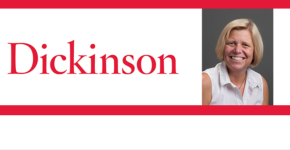 As the gross national product rises, the rate of happiness in the U.S. is declining.
As the gross national product rises, the rate of happiness in the U.S. is declining.
Marie Helweg-Larsen, professor of psychology at Dickinson College, examines why Danish people are so happy and how we can emulate them.
Professor Helweg-Larsen’s research is in the areas of social psychology, health psychology and cross-cultural psychology – specifically why smart people do dumb thing and how to make them stop. She is currently examining in the US and Denmark how smokers react to being stigmatized.
Hygge
The new World Happiness Report again ranks Denmark among the top three happiest of 155
countries surveyed – a distinction that the country has earned for seven consecutive years.
The U.S., on the other hand, ranked 18th in this year’s World Happiness Report, a four-spot drop
from last year’s report.
Why might Danes evaluate their lives more positively?
Danes have a stable government, low levels of public corruption, and access to high-quality
education and health care. The country does have the highest taxes in the world, but the vast
majority of Danes happily pay: They believe higher taxes can create a better society.
Perhaps most importantly, however, they value a cultural construct called “hygge”.
The Oxford dictionary added the word in June 2017 and Amazons sells more than 900 books on hygge.
Hygge is sometimes translated as “cozy,” but a better definition of hygge is “intentional intimacy,” which can happen when you have safe, balanced and harmonious shared experiences. A cup of coffee with a friend in front of a fireplace might qualify, as could a family summer picnic in the park.
Research on hygge has found that in Denmark, it’s integral to people’s sense of well-being. It acts as a
buffer against stress, while also creating a space to build camaraderie. In a highly individualized
country like Denmark, hygge can promote egalitarianism and strengthen trust.
In the US the gross national product has been rising but level of happiness have been steadily declining. Why? Because income inequality continues to rise. And because of a decrease in interpersonal trust and trust toward institutions like the government as well as the media.
At its core, hygge is about building intimacy and trust with others. Americans could probably use a little more of it in their lives.

Comments
One response to “Marie Helweg-Larsen, Dickinson College – Hygge”
I wonder what the word roots of hygge might be. ‘Cozy’ seems to be the nearest fit in English for the Dutch “gezellig’”and German “gemutlich.” So maybe there is some common etymological ancestor among these. The Swedes, not be be left out, have a word that intersects this terrain of stress-relief, latitude, too: “lagom” – not too much or too little, but just about right. That sort of balanced feeling or experience might be still another facet of the lexical field that hygge occupies.